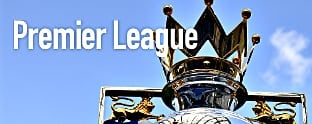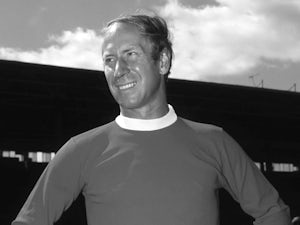Few people in life, yet alone football, can claim to have experienced such a contrast of unimaginable lows and euphoric highs as Sir Bobby Charlton.
From the tragic, harrowing events in Munich in 1958 to World Cup glory just eight years later, Charlton went through it all during his legendary playing career.
The England and Manchester United icon's death at the age of 86 has sent a wave of sadness throughout the world of football as the sport mourns a true giant of the game.
Not many players who personified Manchester United and led them to such heights for so long would be so universally admired by rival supporters, yet Charlton's exploits for his country, and his reputation for fair play, sportsmanship and integrity, saw him transcend football rivalries like few players before or since.
The career stats speak for themselves; 249 goals in 758 games for Man United. 49 goals in 106 games for England. All four of those tallies - goals and appearances for both club and country - were records when he hung up his boots.
All of them have now been surpassed, yet it is a mark of Charlton's greatness that his legacy lives on far beyond just his goalscoring exploits and incredible longevity.
In their statement announcing his passing, Manchester United described Charlton as "one of the greatest and most beloved players in the history of our club"; they could have easily said "in the history of football".
A goalscoring midfielder the like of which only emerges once every couple of generations, Charlton can lay a very strong claim to being the greatest player in Manchester United's history, and the best that England has ever produced too.
Such was his humility that he would immediately rubbish such claims; he would be quick to point to some of his contemporaries - the late Duncan Edwards or George Best - as those above him in the Manchester United pecking order, while for England he might cite his World Cup-winning captain Bobby Moore.
However, while any 'greatest of all time' debate is always hugely subjective, there is no doubt that Charlton belongs high up both lists.
He was the first player to win all of the World Cup, European Cup and Ballon d'Or, and only eight other players have achieved that treble in football history to date, none of them English.
That list alone - Franz Beckenbauer, Gerd Muller, Paolo Rossi, Zinedine Zidane, Rivaldo, Ronaldinho, Kaka and Lionel Messi - is enough to demonstrate the esteem he deserves to be held in when it comes to discussing the greats of the game.
The European Cup success came in 1968 - 10 years after the heart was ripped out of Sir Matt Busby's Babes on a Munich runway while chasing that European dream, and two years after claiming the World Cup and Ballon d'Or.
Only his teammate George Best denied him another Ballon d'Or in 1968, while he was second in the 1967 voting too, further underlining his status as one of the world's best players over an extended period of time.
Charlton had football greatness in his blood from birth; born in Ashington, Northumberland to Bob and Cissie Charlton, Bobby was related to the Milburn family, who spawned numerous professional footballers, the most famous of whom was one of Newcastle United's greatest-ever players in Jackie Milburn.
Bobby of course also had an elder brother, Jack, who forged his own legendary reputation as a formidable centre-back with Leeds United and England, the latter of whom he helped to World Cup glory in 1966 alongside his younger brother.
Manchester United came knocking for the youngster in 1953, beginning a 20-year stay at Old Trafford which saw him experience triumph and tragedy as a cornerstone of the Busby Babes.
Two goals on his debut against his club namesake Charlton Athletic in 1956 was a sign of things to come, and he went on to score 12 times in 17 appearances during that first season of senior football - including a hat-trick in the reverse fixture against Charlton too - to help Man United to the First Division title and the FA Cup final in his maiden campaign.
Man United's title triumphs allowed them to be English trailblazers in the fledgling European Cup, and having reached the semi-finals in 1956-57 before being beaten by that great Real Madrid side, Busby and co made it to the last four again in 1958.
However, tragedy struck on their way back to England from their quarter-final victory, as the plane Man United's players were travelling on skidded off an icy runway following a refuelling stop in Munich.
Charlton was dragged from the wreckage by Harry Gregg and emerged as one of the lucky survivors from a devastating disaster that claimed the lives of 23 people, including eight Man United players.
Still only 20 years old, Charlton was back on the pitch less than a month after the crash and went on to become the player around whom Man United's rebuild was centred.
FA Cup glory came at the third attempt in 1963, before Man United re-established their place at the top of the English league pyramid by winning the title in 1965 and 1967, either side of Charlton's World Cup triumph for England at Wembley.
A talisman for his country as well as his club, Charlton had already been to the 1962 World Cup before the unforgettable experiences of 1966, which included a titanic display in the semi-final against Portugal as he outshone Eusebio with two goals.
A young Beckenbauer prevented him from having such a big say in the final itself, but Charlton was also credited with quelling Beckenbauer's own influence as England beat West Germany 4-2 for what remains their greatest-ever day.
Back at domestic level, Man United claimed perhaps their most cathartic triumph of all when they beat Benfica to win the European Cup in 1968, 10 years after Munich, with Charlton unsurprisingly playing a defining role by scoring twice and then lifting the trophy as captain.
The Red Devils did not hit such heights again until Sir Alex Ferguson came along, and Charlton was a constant presence at Old Trafford throughout their second golden era.
A dementia diagnosis in 2020 saw his public appearances become limited, but his influence on the sport will never be forgotten and he remains the standard for all English midfielders to compare themselves to.
A true worldwide icon of the sport and quite possibly the best English player ever - rest in peace Sir Bobby Charlton. body check tags ::













